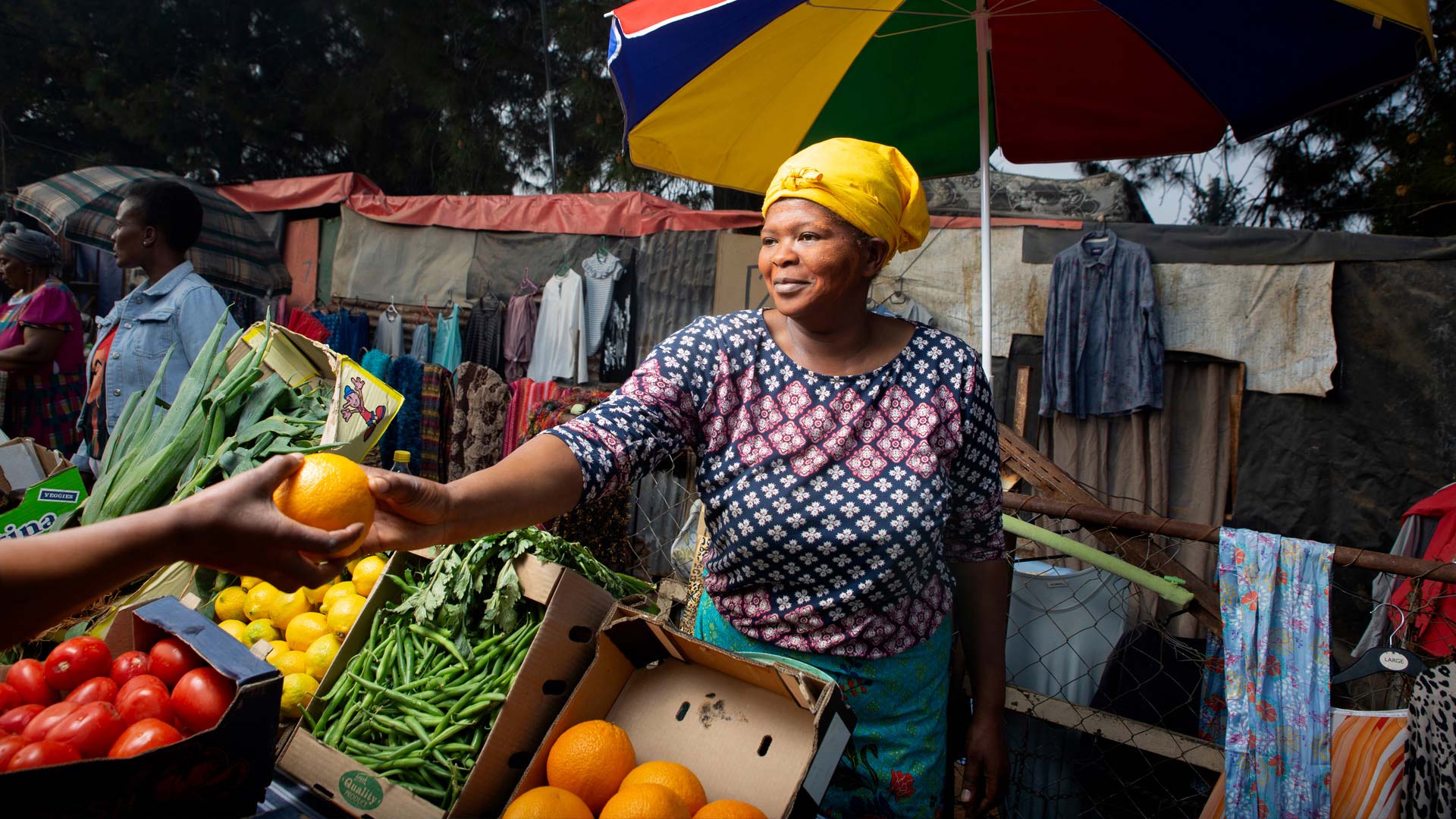Greater awareness of the environment and healthier lifestyles is fuelling growth in the sustainable, eco-friendly small-business sector worldwide. There is an increased focus on making it easier for entrepreneurs to access this sector despite challenges such as production, packaging and logistics costs across the different product segments.
While food and beverages still dominate the sustainable products market in South Africa and globally, the range of ‘green’ products and services is becoming more diverse as the sector grows. What is the global growth picture, and where do the opportunities for South African entrepreneurs lie?
How businesses can operate sustainably
Sustainable businesses seek to reduce their impact on the environment, especially their contribution to the climate crisis. In the food and beverage segment, there is also an emphasis on using less processing and fewer additives than commercial, industrialised food production. Green businesses avoid harmful business practices, minimise waste, and reduce their carbon footprints through (among others) the following strategies:
- Adopting more sustainable resource use.
- Developing more sustainable manufacturing processes.
- Using less harmful packaging.
- Switching to less carbon-intensive shipping methods.
Globally, the green sector has produced successful businesses in energy, water conservation, waste management, tourism and fashion, but the most popular are in the food, beverage and cosmetic segments.
The food and beverages market makes up the largest segment in the sector, with an estimated value of more than US$208 billion and a compound annual growth rate of almost 12% predicted till 2030. This growth prediction is a result of growing consumer perceptions of the health benefits of sustainably produced, less processed foods – they are no longer confined to niche stores or farmers’ markets.
Body, hair and skin care companies are becoming more concerned with sustainable agricultural practices and products.
Tapping into sustainable product markets
Fruit and vegetable production and processing currently support the highest proportion of small-business producers, accounting for 42% of global sustainably farmed food revenue. It is likely to remain dominant, and the segment is showing healthy growth in South Africa and other emerging economies.
However, analysts expect the consumption of sustainably farmed meat, fish and poultry products to register the highest growth rate over the next decade, driven by concerns about animal welfare, deforestation, artificial preservatives, hormones, additives and damaging farming techniques. Health perceptions and awareness of the need for sustainable agriculture are key drivers of this shift.
Consumers are also shifting to eco-friendly home sanitation products and cosmetics. The use of potentially damaging chemicals in conventional cleaning agents and beauty aids, which can have adverse health effects and negative impacts on the environment, is driving the consumer shift to greener, natural products.
Gas and solar installation, window double-glazing, energy-efficient lighting and ceiling insulation all offer opportunities
Another growing concern among consumers is the disposal of the more than 2 billion tons of solid waste that we generate globally each year. Far too much of it ends up in the soil or the oceans, often with a lethal effect on land and marine ecosystems. Microplastics are another pollutant now found almost everywhere, and we don’t yet know much about what their long-term effect on living organisms will be. From food and drink to household cleaning products, consumers are looking for sustainable producers with new production and distribution strategies that don’t discharge plastics or toxic chemicals into the environment at any stage of their life cycle.
Opportunities for eco-friendly small businesses in South Africa
There’s never been a better time to develop a green business idea in SA, particularly in the retail sector. Consumers’ health and environmental concerns, peaking at a time when online or omnichannel shopping is constantly making products and services more accessible and easier to distribute, present a wealth of opportunities. But apart from the artisanal food and beverage retail market, where else can entrepreneurs enter the green small-business sector?
- Recycling
Waste pollution is a major problem in South Africa, which can make the recycling sector a profitable business sphere. We currently recycle 46% of all plastic, 70% of paper, 72% of metal, and 70% of glass, making ours one of the most effective recycling industries worldwide. There are many opportunities throughout the recycling process to start your business, including collection, sorting, compression and transportation.
- Ecotourism
Environmentally conscious tourism is on the rise, and eco-tourism businesses that can offer sustainable holiday activities and use renewable energy alternatives are ideal for South African landscapes.
- Sustainable fashion
The fast-fashion industry is not traditionally eco-conscious, but fashion designers and manufacturers are responding to the need to change their business practices. South African fashion has many examples of more eco-friendly clothing and accessories. Increasingly, local fashion labels are partnering with businesses that are more aware of the environmental impact of the materials they use, how their raw materials are farmed, and the need to find alternatives to wasteful packaging.
- Green energy
South Africa’s electricity crisis has resulted in a huge boost for alternative, sustainable energy businesses. In the small-business sector, gas and solar installation, window double-glazing, energy-efficient lighting and ceiling insulation all offer opportunities.
Nedbank offers a full range of small-business banking solutions and advice for your investing needs and business growth. To explore a range of options for starting and marketing your business idea, getting advice and networking, join our SimplyBiz platform.








